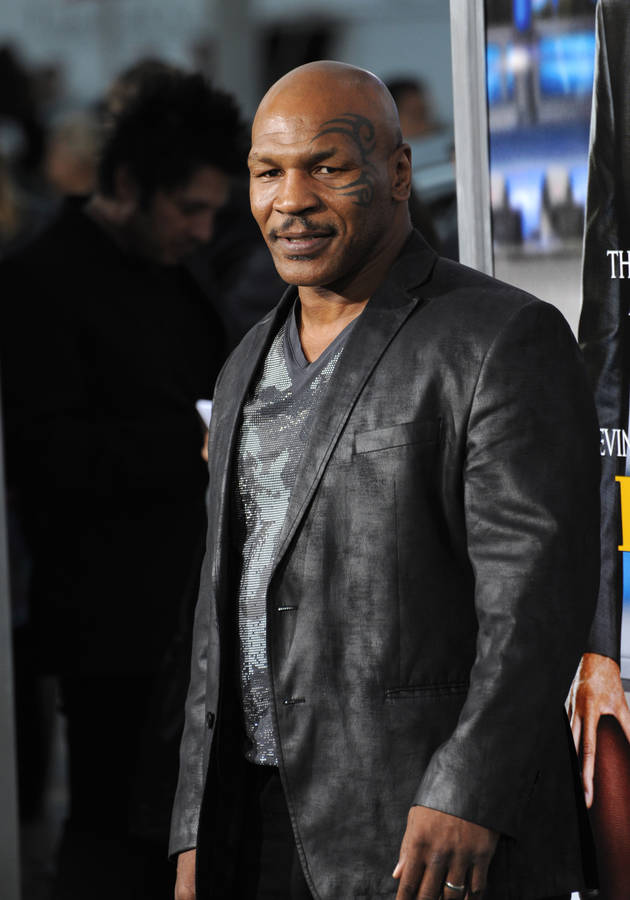How many times have you felt that you have more potential than what your results would testify to? And how many times have you wondered about all of the things you could do more efficiently or, more importantly, better if only you had a little more time?
We suppose too many to count. And if you are like most people, you’ve probably tried at least something to change the situation. Unfortunately, most of the “time management” tactics you’ve tried employing in your life, haven’t worked as well as their creators said they would.
True, you did manage to finish that project on time by working a few more hours last week but, by the end of this one, things seem to have evened out: you just couldn’t keep up with the proposed tempo.
After getting familiar with numerous stories not too dissimilar from the one above, back in 2003, Jim Loehr and Tony Schwartz – then-LGE Performance Systems’ president and chairman – authored “The Power of Full Engagement” with the objective of demonstrating, once and for all, that efficiency is not about adding more time to your workday, but about doing the most with the time you spend working.
Hence, the book’s key idea, written out in the subtitle: managing energy, not time, is the key to high performance and personal renewal. And here’s why.
Energy, not time, is the fundamental currency of high performance
We live in digital time – the fastest age in the history of humankind. Even though most of our ancestors would have laughed off the idea of 24-7 workweeks, it best describes the reality of our world, one in which work never seems to end.
And we take great pride in the fact that, from time to time, we can keep up with the tempo, multitasking our way through the day, using our Google Calendars and endless to-do lists to maneuver around the chaos that we call “life.”
Moreover, if something doesn’t work as well as it should be (as it often happens), we know where we might have gone wrong: we just didn’t invest as much time as we should have. And that is precisely what most “time management” books suggest we should do, regardless of what the problem is.
Your marriage isn’t that perfect? It’s time to start spending more hours with your family. What about that urgent project at work? Well, you need to work more on it as well. And your health? Don’t ever forget about it: spend some more time in the kitchen, and at the gym.
However, a day has only 24 hours, and if you add even a minute to one activity, you need to subtract it from the time allotted to another. And the problem is that even if you do succeed in managing your time efficiently, it is no guarantee that you will bring sufficient energy to whatever it is you are doing.
What difference does it make if you manage to put aside two hours for your children when you are so distracted by thoughts about work that you are unable to give them your full attention?
And does it really matter that you’ve started learning German when, by the second part of your third class, your energy level has dropped off precipitously, and you are struggling to stay focused? Of course it doesn’t!
Because you know full well that life is rarely about the quantity, and often about the quality of our efforts.
In other words, though the number of hours in a day is fixed, the quantity and quality of energy available to us are not. This makes it our most precious resource. And the more we take responsibility for the energy we bring to the world, the more empowered and productive we become.
The four principles of full engagement and the three-step process of transformation
So, being able to manage your energy more effectively in all dimensions – and not your time – is the main challenge that stands between the “who you are now” and the great performer you can be tomorrow. And the process of energy management with the final objective of becoming fully engaged is a process driven by four principles:
- Principle 1. Full engagement requires drawing on four separate but related sources of energy: physical, emotional, mental, and spiritual.
- Principle 2. Because energy diminishes both with overuse and with underuse, we must balance energy expenditure with intermittent energy renewal.
- Principle 3. To build capacity, we must push beyond our normal limits, training in the same systematic way that elite athletes do.
- Principle 4. Positive energy rituals – highly specific routines for managing energy – are the key to full engagement and sustained high performance.
These four principles lie at the heart of the training system advocated by the two authors, which aims to transform one’s life via three simple steps: Define Purpose, Face the Truth, and Take Action.
Let’s make this section a bit clearer in the remaining two sections of our summary.
The four sources of our energy
“To be fully engaged,” write Loehr and Schwartz, “we must be physically energized, emotionally connected, mentally focused and spiritually aligned with a purpose beyond our immediate self-interest.”
No. 1. Physical energy: fueling the fire
We don’t need to tell you what we mean by “physical energy”: for most people, the phrase is almost synonymous with the word “energy.” In other words, when people say they are tired, what we usually hear is that they are physically unable to do things.
Now, even though the importance of physical energy seems obvious for athletes, construction workers, and farmers, the rest of us seem to discount the role it plays in performance. In reality, our physical energy is the fundamental source of fuel, even if our work is completely sedentary.
And making three minor changes – in your sleep, nutrition, and exercise habits – is everything you need to do to replenish it.
No matter what your line of work is, you’ll probably feel like a completely new human being if you sleep seven to eight hours a day, eat healthy and energy-rich foods (nuts, leafy green vegetables, and yogurt) and hit the gym once or twice a week. Trust us.
No. 2. Emotional energy: transforming threat into challenge
Physical energy is the raw fuel for igniting emotional skills and talents, which you have to master if you want to excel in any area of your life.
According to Loehr and Schwartz, emotional intelligence is nothing more than “the capacity to manage emotions skillfully in the service of high positive energy and full engagement.”
And you need to be able to do this, because, to perform at your best, you must access pleasant and positive emotions: the experience of enjoyment, challenge, adventure, and opportunity.
Negative emotions that arise out of a threat or deficit (fear, frustration, anger, sadness) are there to serve survival, but, energetically, they are very costly and, thus, inefficient in the context of performance.
The difference between great and average performers in terms of emotional intelligence is this: unlike average performers, great ones are capable of summoning positive emotions during periods of intense stress.
If you want to become like them, you must start training your key emotional “muscles”: self-confidence, self-control, interpersonal effectiveness, and empathy. And you train them the same way you train physical muscles: by pushing past your current limits of each of them and then setting aside some time to recover.
No. 3. Mental energy: appropriate focus and realistic optimism
You probably know from experience that nothing interferes with performance and engagement as much as our inability to concentrate on the task at hand. And that’s where the importance of our mental capacity can be best observed: it is, in essence, what we use to organize our lives and focus our attention.
The mental energy that best serves full engagement is something Loehr and Schwartz dub “realistic optimism.” It is precisely what it sounds like: seeing the world as it is while believing that it can become better. To sound even more paradoxical, realistic optimism means accepting reality, warts and all, while actively and positively trying to change it, constantly working toward a desired outcome or solution.
The key supportive mental muscles you need to train are mental preparation, visualization, positive self-talk, effective time management, and creativity.Especially the last one demonstrates the best way to do this. Namely, the reason why your most creative ideas come in the shower or just before going to sleep is that it is at these times of the day that you allow your left hemisphere to take some rest after overstraining throughout the day.
So, pushing past your comfort zone and then recovering is once again the way to do it!
No. 4. Spiritual energy: those who have a “why” to live
Even though the quantity of energy we have to spend at any given moment is a reflection of our physical capacity, our motivation to spend what we have is largely a spiritual issue. And that’s the fourth and final energy we possess: the spiritual energy, the one that fuels our passion, perseverance and commitment.
These three (combined with integrity and honesty) are the key supportive spiritual muscles, all serving our courage and commitment to live by our deepest values, i.e., our character.
Unlike all the other three energies, spiritual energy is not found solely within us: it is mostly derived from serving a purpose beyond our self-interest.
Think of it this way: no matter how regularly a smoker’s life is bombarded with relevant commercials and medical bits of advice, and is likely to go on preferring immediate satisfaction to future well-being and unlikely to give up smoking. However, pregnant women find it much easier to quit smoking than almost everyone else. Why? Because they have a lot more spiritual energy which comes from thinking about the health of their child, i.e., something beyond their immediate self-interest.
The training system (aka the change process)
More or less, this is where the training system developed by Loehr and Schwartz begins.
A three-step process that aims to transform a person from a chronically exhausted multitasker into a fully engaged performer, Loehr and Schwartz’s training system can be easily summed up as follows..
Step 1: Defining purpose: the rules of engagement
Ever since the beginning of recorded history, the search for meaning is the most powerful and enduring theme in every culture. And if you want to become a great performer, finding the “why” of your existence should be the essence of your journey through life. Not only because it is easy to give up halfway in the absence of purpose, but also because it is difficult not to achieve something when you have one.
It is important to remember, however, that a good purpose is always rooted in something beyond self-interest, is a positive one, and is intrinsically motivating (for example, money and fame are never good purposes).
Step 2: Facing the truth: how are you managing your energy now?
The second stage of becoming more fully engaged is facing the truth. Why, you ask? Well, because avoiding it is emotionally draining. However, we are biologically programmed to do so because self-deceiving protects our self-esteem. Unfortunately, this biological program is survival-based and has no place in the modern world of today.
If you want to be fully engaged, it is much better to open yourself to the world and start accepting the fact that your view might not represent the truth. The mere act of doing this would reduce your defensiveness and, thus, increase the amount of positive energy available to you. And that’s what separates great performers from the rest of us.
Step 3: Taking action: the power of positive rituals
Once you’ve defined your purpose and faced the truth, it’s time you to take some action.And the best way to do this is the one practiced by every great performer who’ve ever lived: positive rituals.
Don’t think of rituals as remnants of the past, but timeless energy regulators and character-defining habits. They are the ones that turn “bad” behavior into “good” through priming, in addition to being responsible for conserving energy precisely because they are predictable and repetitive.
If you want to make lasting change, you must build serial rituals, focusing on one significant change at a time.
Final Notes
Though nicely written and well-structured, “The Power of Full Engagement” seems somewhat repetitive from time to time, and (in our view) it needlessly incorporates the story of a certain Roger B. to illustrate its main points. However, it is undeniable that most of its points make sense and that its bits of advice can change a person’s life – if one allows them to.
12min Tip
To be fully engaged, even in a sedentary work, mobilize each of the four key sources of your energy: physical, emotional, mental, and spiritual. Also, whenever possible, take a break.





























